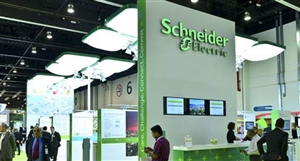Company to Highlight how Datacentre is Lifeline of Smart City at IDC’s Middle East CIO Summit 2014 in Dubai
Schneider Electric has signed up as the Smart City Partner for IDC’s Middle East CIO summit that is set to run on February 24 and 25 at the Jumeirah Beach Hotel in Dubai.
The two-day conference is titled ‘Being a CIO in the New Business World of Tech + Transformation’. As part of its support to the event, Schneider Electric will showcase its portfolio of integrated solutions in industries including banking and finance, hospitality, transportation, healthcare and telecommunications.
Schneider Electric will host a panel discussion on smart cities on day two of the summit headlined by Charbel Aoun, Vice-President, Smart Cities, Schneider Electric, and Dr Arwa Al Aama – Chief Information Officer, Jeddah Municipality. The hour-long discussion will highlight the need to integrate IT infrastructure strategies for shaping a smart city that is sustainable.
Charbel Aoun said, “The convergence of IT and smart solutions is inevitable and definitely represents the way forward in achieving a smart city. At Schneider Electric we have adopted a five-pronged approach towards developing a smart city. First by setting the goal and the roadmap; next by bringing in the technology solutions to improve the efficiency of the urban systems; step three involves integrating and combining information and operation of overall city efficiency; step four requires using innovation to build the city’s specific business model and lastly, by collaborating with global players and local stakeholders.
Jyoti Lalchandani, Group VP & Regional MD, Middle East, Turkey & Africa at IDC, said, “Globally, IT spending is expected to grow by nearly 4.6 per cent in 2014, totalling US$2.14 trillion. In the Middle East, this growth will come from IT infrastructure build out and an increased focus on technology-led efficiencies, even as most GCC countries aim to achieve ‘smart city’ status. The IT market in Middle East and Africa currently estimated at US$76 billion (2013) is anticipated to witness a surge and may peak to US$94 billion by 2017.”




















